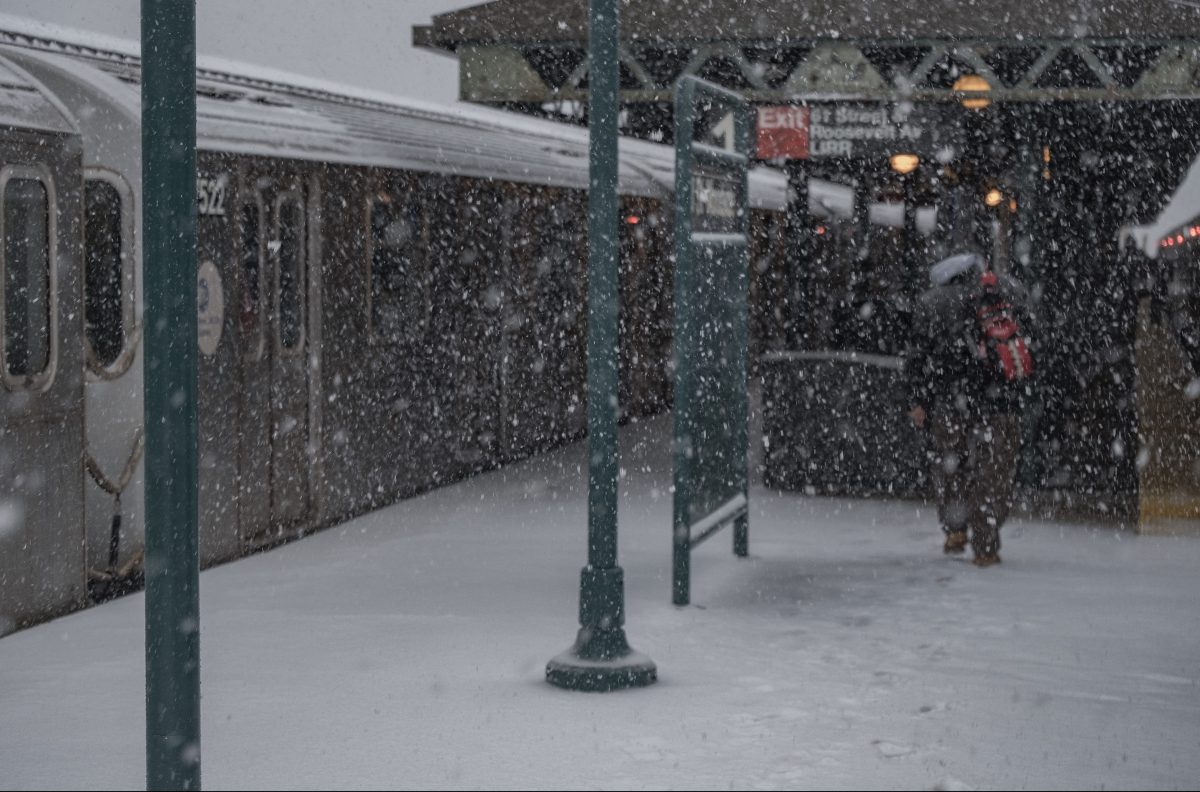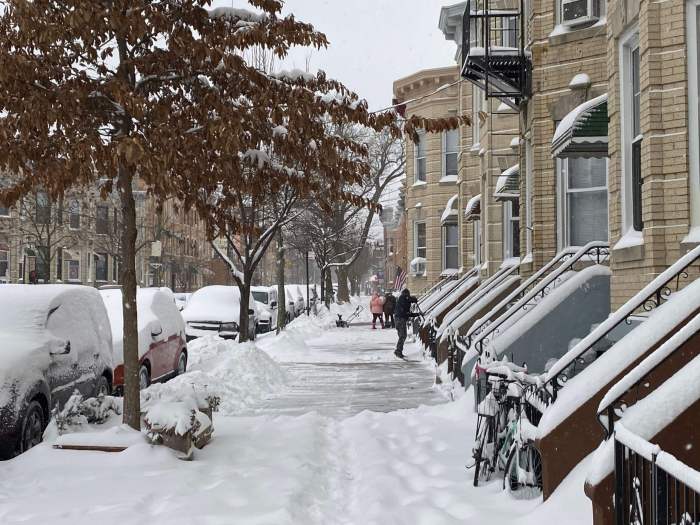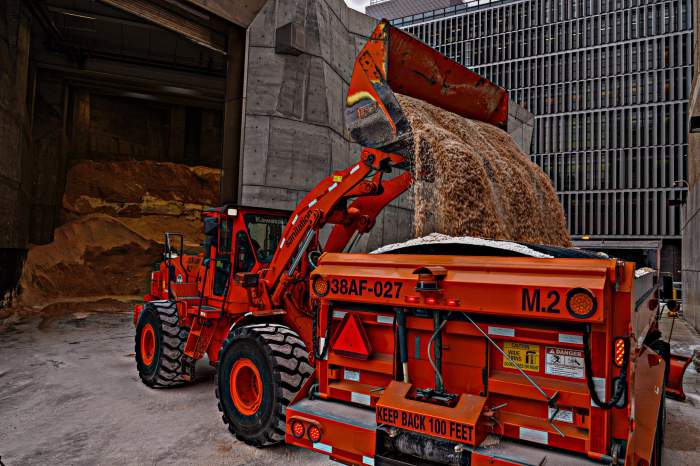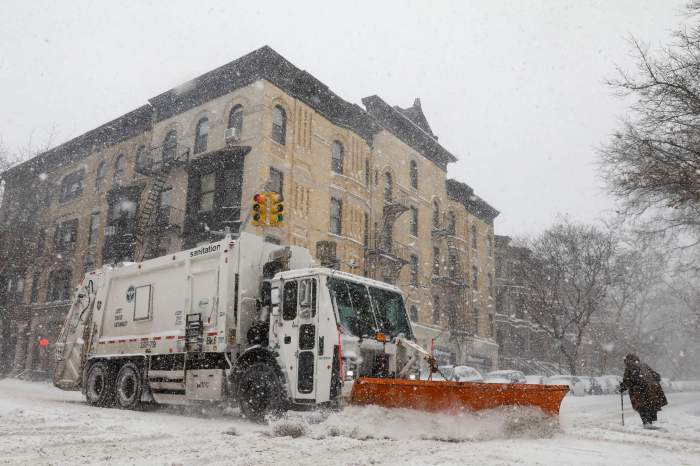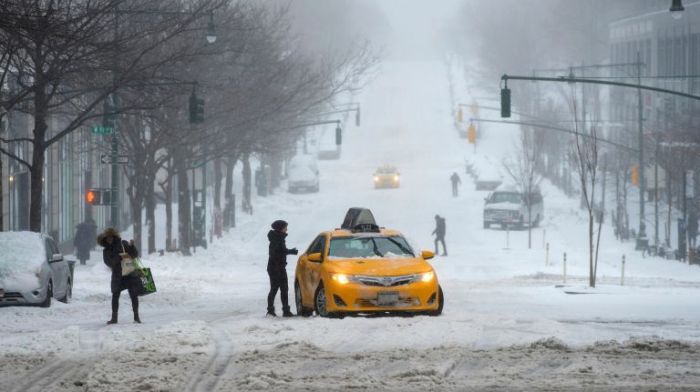New York City saw the early showings of a major snowstorm on Monday morning and with around 16 inches expected to fall in the five boroughs, Mayor Bill de Blasio ordered several parts of the city to shut down at least through Tuesday.
De Blasio, in a rare Sunday press conference, canceled Open Restaurants and ordered vaccination appointments to be postponed as his administration urged motorists to stay off the roads if possible, while making preparations with Department of Sanitation equipment being staged.
Public school buildings closed Monday, but it isn’t a snow day; remote learning will continue in the storm. Learning Bridges, after-school programs, adult education and YABC programs are canceled.
“On Monday, stay home. If you don’t need to be in a car you can use mass transit — much better to stay out of your car. We have a real challenge on the roads, on the sidewalks on Monday, so putting everyone on alert: please, to the maximum extent you humanly can, make alternative plans,” de Blasio said.
Alternate side parking is suspended through Tuesday.
Office of Emergency Management Commissioner Deanne Criswell said snow and downed trees are not the only concerns they are preparing for, but also flood risks in sections of the city prone to coastal flooding.
“In addition to that, we’re also going to see some minor coastal flooding in those areas that normally see it and southern Queens as well as some parts of Manhattan, Brooklyn Bronx and northern Staten Island. And this is going to be during the high-tide cycles, on Monday,” Criswell said. “Our tow truck Task Force has also been activated so that it can respond quickly to clear any vehicles or debris blocking roads. And we’re also going to have a number of tow trucks pre-positioned at some of those critical sites around the city like bridges.”
This storm may possibly be the last situation managed by the current OEM commissioner, as Criswell is expected to depart the de Blasio administration for a job as FEMA administrator for the Biden administration. She’s the second city leader to be poached by the White House after former DOT Commissioner Polly Trottenberg was tapped to serve in the administration several weeks ago.
DSNY Commissioner Edward Grayson said some measures against the storm were already completed. Around 400 miles of liquid brine had been spread on city streets by Monday morning.
Governor Andrew Cuomo reported, contrary to the mayor, that the five boroughs could receive as much as 18 inches, though the focus on his Sunday briefing remained on COVID-19, which he said is seeing a decrease in the three-day average of positive tests, and even a drop in hospital admissions, which dipped below 8,000. Intensive care unit admissions were also on the decline.
But concern over variants from the United Kingdom, Brazil and South Africa remain.
About 1.919 million doses of the vaccine have been administered statewide, but Secretary to the Governor Melissa DeRosa said if the snowstorm has any conflicts with vaccinations efforts, those with appointments will be contacted.
The Metropolitan Transportation Authority has been preparing for the storm for the last two days, according to officials who echoed the warning to stay home. Thousands of buses have been moved and equipped with chains, according to MTA Bus Company President Craig Cipriano.
New York City Transit’s assets will be clearing the way on roads and their facilities in preparation, he said. Some service has been reduced as the Cipriano says 60-feet articulated buses have been removed from service in exchange for 3,000 40-foot buses.
Thirty-five snow-fighters will be deployed to help DSNY clear hotspots and terminals while the MTA will also have 60 plow trucks and tow trucks to address any issues. Eighty trucks will distribute some of the 300,000 pounds of de-icing material.
“We have contingency plans on contingencies on contingencies to make sure that everybody is kept safe at all times and our situation room is operating 24 hours a day to deal with any situation real time,” MTA Chief Operating Officer Mario Peloquin said.
Paratransit will be equipped with snow-chains and move to a 24-hour booking cycle, but are expected to continue service as planned, Cipriano said.
On subways, de-icing material will be dispersed on tracks and the third rail Monday afternoon, according to Demetrius Crichlow, acting executive vice president of subways, and snow blowers were deployed on Monday during the height of the storm. Jet blowers will clear train yards.
Express service on subways may be effected on some lines as the MTA moves trains from yards, to prevent them from being blocked in, to express tracks for storage.
Metro-North and Long Island Rail Road also have all the equipment on hand to ensure there impact from the snowstorm is minimized to service, Peloquin said. Metro-North service is already reduced to 60 percent of pre-COVID levels while the LIRR will go to weekend service levels.



